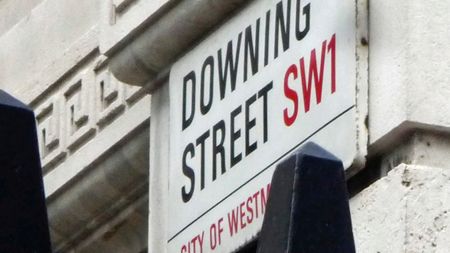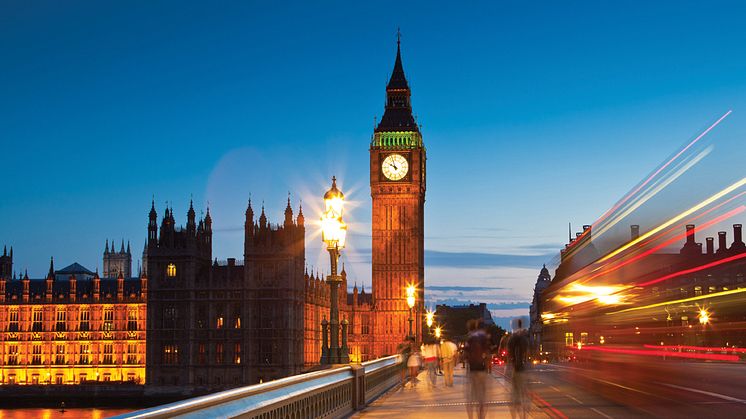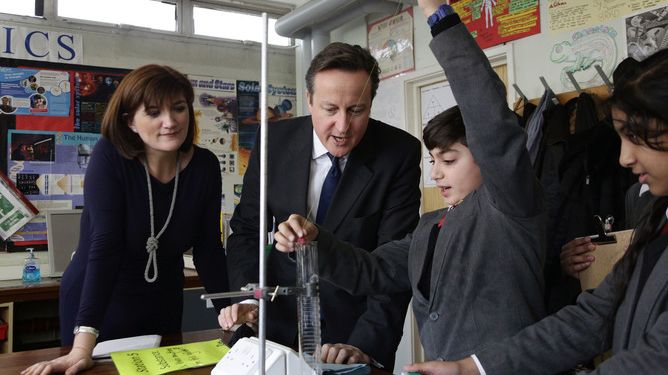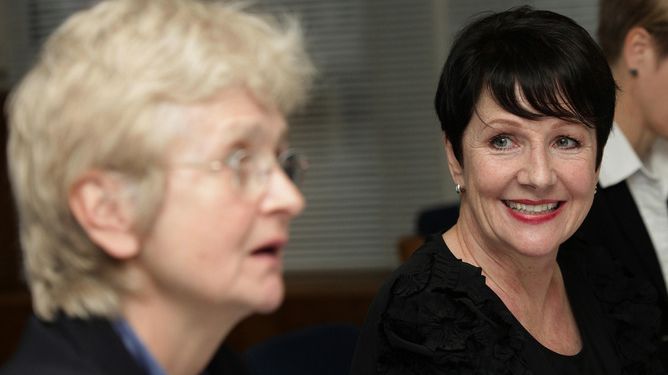
Press release -
General Election 2015 - Our panel's reactions to the result
Our academics offer their expert opinions on the General Election results.
Howard Elcock, Emeritus Professor of Government.

Like the pollsters and most of my colleagues in the political science trade, I called the election wrong – I predicted that Labour would be the largest party in a “hung” House of Commons.. No-one seems sure about what went wrong with the polls, although Lionel Shriver has an interesting piece in today’s (Tuesday 12th May) Guardians arguing that people are reluctant to admit to voting Tory because they feel intimidated by a domineering argumentative Left Wing. There seemed to be more people than usual declaring that they were undecided during the campaign – maybe they were the “shy Tories”?
As to the reasons for the Labour defeat, the explanation is emerging among senior Party figures that not enough was done to maintain the “Blairite” coalition of the poor, working people and “middle England – the aspirant working and middle class people who hope to better their lives, or their children’s lives. This could be right – a glance at many of re discussions of Labour's failure are endorsing that view, as well as David Miliband and Lord Mandelson but do we know for sure? Also Labour performed well in some parts of the country but badly in others, especially the Midlands and the South. Labour did well in most of the North -, for example my MP, Chi Onwurah, almost doubled her majority. However, Labour failed to win two of its Northern target seats – Carlisle and Stockton South, but won convincingly in the third – Redcar and Cleveland. Elsewhere the results were generally bad for Labour except in London – there were seats in Nuneaton, Plymouth and Southampton, together with many others that should have gone Labour but didn't.
The Scottish story is different. Labour has taken its Scottish support for granted for far too long. The election results in the Scottish Parliament’s last elections, when the SNP gained a majority was a warning sign, as was the referendum result in that the heaviest Yes votes occurred in Labour's heartlands in Glasgow and Dundee. These signs should have been more noticed by the party hierarchy as signs that things were changing. There was also the former Scottish Labour Leader (whose name I cannot remember for the life of me) who resigned complaining that she was the head only of a branch of the London Labour HQ. The Scottish Labour Party must be given more scope to respond to local issues and it needs a new, younger, more attractive leader than Jim Murphy.
Dr Lee Barron, Principal Lecturer in the Deparment of Media and Communication Design:
 The results to the 2015 General Election have been read in terms of a ‘shock’ result with the Conservatives winning 318 seats to Labour’s 228 seats and establishing a Conservative majority government, with the previous coalition firmly rejected and the Liberal Democrats losing a substantial degree of their political visibility and influence with just 8 seats won.
The results to the 2015 General Election have been read in terms of a ‘shock’ result with the Conservatives winning 318 seats to Labour’s 228 seats and establishing a Conservative majority government, with the previous coalition firmly rejected and the Liberal Democrats losing a substantial degree of their political visibility and influence with just 8 seats won.
The five years that the Liberal Democrats have spent as part of the coalition have arguably led to something of an ‘identity crisis’ with voters regarding their precise ideological qualities and they seem to have paid the electoral price. In a wider context, while my prediction has certainly not come to pass post-Election day, this was a difficult election to predict. The feelings in the media pointed to a low-key Conservative campaign that only really came to life in the late stages contrasted with Ed Miliband’s increasing confidence.
However, my observation that the SNP would play be a crucial role has been realized, albeit to the detriment to Labour given their historical landslide victory in Scotland in winning 56 seats and transforming the Scottish political landscape rendering all other parties now largely irrelevant. This is of course a serious blow to Labour as they have traditionally looked to Scotland for strong support. Compounding this factor, the Conservative’s message on economic recovery has been a potent one throughout the campaign and media representations of Ed Miliband as unlikely Prime Minster material and lacking in presence have also proved to be effective (with his appearance on The Trews with Russell Brand seen as an ill-advised tactic). In the longer term, the SNP’s dominance in Scotland will have long-reaching effects on Labour’s future electoral strength and the issue of leadership will be a paramount factor in their oppositional strategies and political identity.
Last week I was asked to offer my predictions for the outcome of the general election. Whilst I successfully predicted that the Conservative Party would win the most seats I failed, along with perhaps everybody else in the country, to foresee that they would win a majority. As a result of this the implications for the country are perhaps even more profound as the government is now able to pursue its neoliberalist agenda unhindered by the Liberal moderating force present in the previous coalition.
Jonathan Blackie, Visiting Professor and Culture Partnership
Manager for the Association of North East Councils:

Tuesday 12th May. Well that’s it, until May 2020, but including a referendum on the European Union by 2017, at the latest. Perhaps also a Constitutional Convention on Scotland and the devolved administrations, including a ‘Devo’ offer to the English cities and Combined Authorities?
We have the prospect of trains full of Scottish MPs speeding their way through the North East, on their way to London. Will it improve our transport links, or lead to further delays in investment? We can imagine a region squeezed between the South and the border with Scotland, facing further reductions in public expenditure.
On the other hand how might we build bridges across the border, in the many areas where we share a common interest and heritage, and to the new Government in London?
Scotland, Manchester and many other areas admire our cultural infrastructure. They aspire to have such an excellent concert hall in Sage Gateshead. We have a formidable array of talent in our culture sector. We have similar parallels in our business community. The arrival of Hitachi, to produce the high speed trains of the future, in County Durham, is a much anticipated event, on a par with the arrival of Nissan several decades ago.
Our prospects probably lie in our ability to make the most of this moment, to build a relationship with the new Government, and recognise the bridges that cross the border to the North.
Professor Karen Ross, Professor of Media:
 Professional pollsters’ predictions are always wreathed all around with umpteen caveats, mostly about the conspicuous imprecision of their forecasts, so much so it’s a wonder that they bother to say anything at all but there we are, psephology as both art and craft but scientific accuracy not so much. Of course, these folks are somewhat at the mercy of what people choose to tell them when asked about their voting intentions and we know from our own experiences of being polled for different products and services – and political parties are marketed as brands in the same way as everything else – that veracity is not always at the forefront of our answers.
Professional pollsters’ predictions are always wreathed all around with umpteen caveats, mostly about the conspicuous imprecision of their forecasts, so much so it’s a wonder that they bother to say anything at all but there we are, psephology as both art and craft but scientific accuracy not so much. Of course, these folks are somewhat at the mercy of what people choose to tell them when asked about their voting intentions and we know from our own experiences of being polled for different products and services – and political parties are marketed as brands in the same way as everything else – that veracity is not always at the forefront of our answers.
So it should not have come as too much of a surprise that come election night, the Exit Poll of people who had actually voted was showing something rather different to what the other 11 polls carried out on Election Eve were suggesting. At least two inferences can be drawn from this: one is that people lie to random pollsters but are more likely to tell the truth to people hanging around outside polling stations perhaps because of some assumed authority; the other is that more people were genuinely undecided than had been predicted. What was rather amusing to watch was the refusal to accept what the Exit Poll was saying amongst the BBC commentators and guests who were stuffed into BBC Election HQ for what turned out to be a very long night, Paddy Ashdown going so far as to say he’d ‘eat his own hat’ on camera if the predictions came aright.
He qualified this rash intent by saying it had to be made of marzipan but even so, his comment exemplified the shared disbelief that so many of the previous polls could have got things so wrong. Ironically, if anything, the Exit Poll underplayed the extent of the Tory victory although the actual share of the votes won by each party demonstrated yet again the heavy price paid for a system in which the winner takes all and the runner-up, not matter how close, gets nowt, shy or otherwise, as they say in the North East. Whilst there were jubilant winners and sad losers and not a few senior resignations, one group of politicians who did well were the women.
Their success has increased the number of women MPs at Westminster to 29%, the highest in the Parliament’s history, due in no small part to the SNP’s very creditable record in fielding women candidates: one of those new Scottish MPs is Mhairi Black who, at 20 years old, is the youngest MP since 1667. When Parliament sits for the first time after the election, it will be a very different place to what it was on March 30th. More women politicians will make a difference, come on the girls!
Alex Hope, Senior Lecturer in Business Ethics:  As I predicted in my pre-election piece, we now face the prospect of an increased North/South divide with the North of England perhaps more sympathetic to the social-democratic agenda of an SNP dominated Scotland than slash and burn Westminster austerity. The gulf between rich and poor will continue to become more pronounced as the promised tax cuts for top earners and tough benefit cuts begin to bite. Then there is the now inevitable EU referendum which has the potential to see the UK, or England at least, become even more of an Island state at a time when nations need to be working together to tackle large scale ‘wicked’ issues such as climate change, international poverty and global security. There is then the real potential for communities to feel increasingly divided, and for the UK to perhaps become alienated on the world stage.
As I predicted in my pre-election piece, we now face the prospect of an increased North/South divide with the North of England perhaps more sympathetic to the social-democratic agenda of an SNP dominated Scotland than slash and burn Westminster austerity. The gulf between rich and poor will continue to become more pronounced as the promised tax cuts for top earners and tough benefit cuts begin to bite. Then there is the now inevitable EU referendum which has the potential to see the UK, or England at least, become even more of an Island state at a time when nations need to be working together to tackle large scale ‘wicked’ issues such as climate change, international poverty and global security. There is then the real potential for communities to feel increasingly divided, and for the UK to perhaps become alienated on the world stage.
Despite this seemingly gloomy outlook, I am an optimist by nature. Rather than staring gloomily into the bottom of my coffee cup this morning, I feel renewed purpose and intend to spend the next five years working hard to demonstrate that the principles of sustainability, equality and social democracy are not incompatible with those of business, the government or the economy. Ultimately what's good for society and for the planet, must be good for business and the economy as the latter cannot exist without the former.
Dr Hans-Christian Andersen, Senior Lecturer at Newcastle Business School:
 Who saw that coming? The Conservatives with a majority of ten and the British two-party system restored to its former, well, is it its “glory”? The First Past the Post System has, once more, created a majority government out of a minority share of the vote and a large section of the electorate sees itself without democratic representation. After five years of coalition government, that seems a strikingly unreasonable outcome, as if the two-party system was the default system and as if unfairness is the acceptable foundation for a modern democracy.
Who saw that coming? The Conservatives with a majority of ten and the British two-party system restored to its former, well, is it its “glory”? The First Past the Post System has, once more, created a majority government out of a minority share of the vote and a large section of the electorate sees itself without democratic representation. After five years of coalition government, that seems a strikingly unreasonable outcome, as if the two-party system was the default system and as if unfairness is the acceptable foundation for a modern democracy.
But David Cameron does, of course, deserve congratulations. To gain an increased mandate in Parliament is highly unusual for a sitting Prime Minister and this demonstrates that the electorate have been satisfied with the performance of its government (and distrustful of the alternative parties). Perhaps he also deserves commiserations. He has won the regalia of prime ministerial power but he is also wearing the golden shackles of a Prime Minister whose ambition is to hold together a United Kingdom which, in some senses, seems disunited as from this morning; and whose party will make the most of his promise to hold a EU referendum and (here he may want to ring Tony Blair for advice) to abandon his post as Prime Minister before the end of his second term. “When, David?” as Boris Johnson will soon begin to ask him.
This has, of course, been one of the most exciting national elections to follow in many years, a cliff-hanger up until the last moment, costing three party leaders their posts and who knows how many polling firm bosses will find a P45 in their next wage packet. I do not imagine that political life will become less exciting after this week.
Categories
Northumbria is a research-rich, business-focussed, professional university with a global reputation for academic excellence. To find out more about our courses go towww.northumbria.ac.uk
If you have a media enquiry please contact our Media and Communications team at media.communications@northumbria.ac.uk or call 0191 227 4571.











